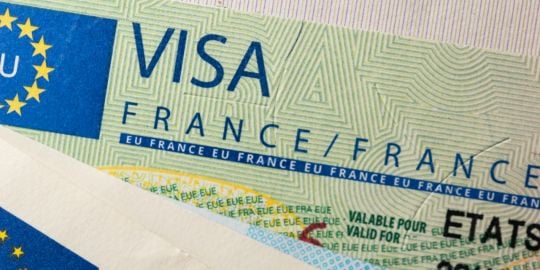Income tax in France

It's no secret that France has one of the highest taxation rates in the European Union, even though they do not reach the levels of Scandinavian countries. Before moving to France, it is essential to acquaint yourself with the different taxation policies, as tax requirements can be significantly different from those of your home country.
For example, it is compulsory for you to declare bank accounts held internationally as part of your tax declaration, and not doing so exposes you to significant fines. If you can afford it, it might be a good idea to book a session with a tax professional to understand how the system works.
Types of taxes in France
In general, taxpayers in France must pay the following:
Income tax, paid at source since 2019
Social security contributions, deducted at source
Value-added tax (VAT) which is an indirect tax applying on the basic price of all products and services available in the country
Housing tax (paid both by the owner and the tenant)
Property tax (paid by land and property owners)
Capital tax
Conditions
If you are based permanently in France, you will be required to pay your taxes in France. Things can get slightly complicated if you move to France or leave the country in the middle of the fiscal year. If you are in this category, you might have to pay taxes in two countries during the crossover period. However, in general, you will pay tax in France if you:
have a permanent and habitual family residence in France;
are working in France (but it should not be an ancillary professional activity); or
have economic interests based in France.
Important:
Make sure to check whether your home country has signed a non-double taxation agreement with France. This will exonerate you from payments in your home country and in France. If you have worked part of the year abroad and have paid taxes on your earnings, you will still be required to declare those revenues as the latter will be taken into account for the calculation of your overall taxation rate.
Income tax in France
All residents in France pay income tax, regardless of their source of income. However, the French tax system distinguishes between household income, families with or without children and the single taxpayer. In short, families pay less tax than single taxpayers.
Revenue generally refers to the following:
Wages
Investments
Dividends
Bank interests
All pensions
Income on property
Note that your employer will generally communicate the value of your earnings to the tax authorities (for the years following your first tax declaration). Banks will also automatically communicate the value of the dividends or earnings made on your different accounts. In both cases, however, it is your responsibility to ensure that the values communicated are correct and include all your earnings. The law changes relatively quickly with regards to taxes, and it is highly advisable to consult the pages of the tax authorities before filing your taxes (see links below). For example, the tax laws were recently changed, and it is now compulsory to declare any income you receive from renting out your property on Airbnb.
Tax rates in France
The tax rates for 2019 are as follows:
A maximum of 9,964 Euros per annum ' 0 %
From 9,964 to 27, 519 Euros per annum ' 14 %
From 27, 519 to 73,779 Euros per annum ' 30 %
From 73,779 to 156,224 Euros per annum ' 41 %
Beyond 156,224 Euros per annum ' 45 %
Income tax declaration in France
As of 2019, income tax is deducted at the source in France. The tax office takes a sum on or around the 15th day of each month. This has hugely simplified the complex system that preceded the taxation at source system, during which everyone was obliged to file an annual tax return. Today, income tax is based on a person's income from 2017, but following the final manual tax return of 2019 (for 2018 income), income tax will be paid at source based on the latest income, and taken directly from your paycheck.
Useful links:
Services Publics ' Income tax
Direction Générale des Finances Publiques ' The French Tax System
Ooreka









